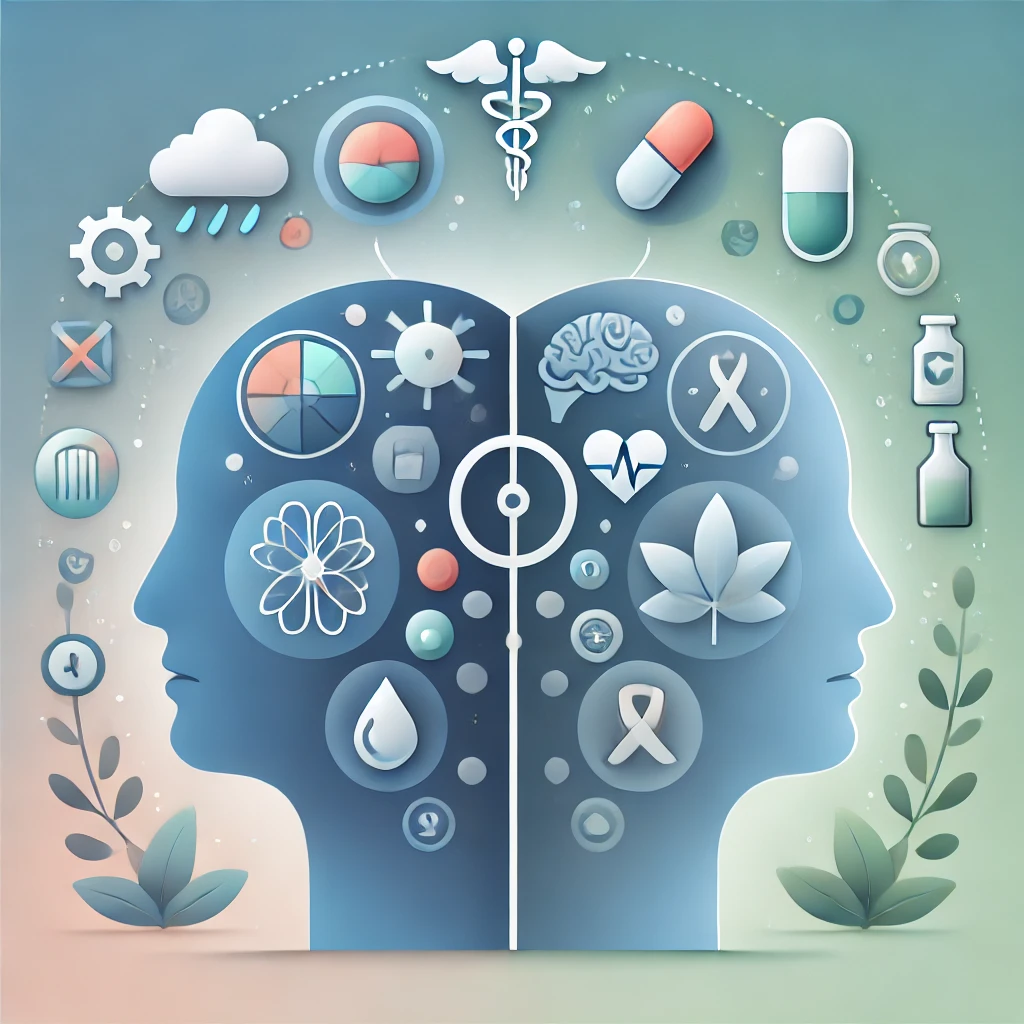Co-occurring disorders, also known as dual diagnosis, represent a critical yet often overlooked area in addiction recovery. These disorders refer to the simultaneous presence of a mental health condition—such as PTSD, anxiety, or depression—alongside substance use disorders. Despite their prevalence, many treatment programs fail to address this intertwined dynamic, leading to suboptimal outcomes and heightened relapse risks. Understanding and addressing co-occurring disorders is essential for effective, long-term recovery.
The Overlooked Intersection of Mental Health and Addiction
Mental health disorders and addiction frequently coexist. According to the National Institute on Drug Abuse (NIDA), around 50% of individuals with a mental illness will also experience a substance use disorder during their lifetime. Common mental health issues linked to addiction include:
- Post-Traumatic Stress Disorder (PTSD): Trauma survivors may turn to substances as a coping mechanism, exacerbating their condition.
- Anxiety Disorders: Persistent worry or fear can lead individuals to misuse drugs or alcohol for temporary relief.
- Depression: Feelings of hopelessness often drive substance use as a form of self-medication.
Despite this strong correlation, many rehabilitation programs focus solely on treating addiction without addressing underlying mental health issues. This narrow approach overlooks the root causes of substance use, leaving individuals vulnerable to relapse.
Why Addressing Co-Occurring Disorders Matters
Integrated Treatment Improves Outcomes
When addiction treatment incorporates mental health care, outcomes significantly improve. Integrated treatment plans that address both addiction and mental health conditions provide:
- Comprehensive Care: Tackling both issues simultaneously ensures no aspect of the individual’s health is neglected.
- Reduced Relapse Rates: Addressing underlying mental health issues diminishes triggers that often lead to substance use.
- Enhanced Coping Mechanisms: Individuals learn healthier ways to manage their emotions and stress.
The Cost of Ignoring Mental Health
Failing to address co-occurring disorders can result in prolonged cycles of recovery and relapse. Without treating the mental health component:
- Individuals may rely on substances to manage their symptoms.
- Recovery becomes more challenging, with higher drop-out rates from treatment programs.
- The stigma surrounding mental health persists, discouraging individuals from seeking help.
Effective Strategies for Addressing Dual Diagnosis
Comprehensive Assessment
Accurate diagnosis is the foundation of effective treatment. A thorough assessment by mental health and addiction specialists can identify co-occurring disorders, ensuring a tailored treatment plan.
Integrated Treatment Programs
Programs that integrate mental health and addiction treatment include:
- Cognitive Behavioral Therapy (CBT): Helps individuals recognize and alter harmful thought patterns.
- Medication-Assisted Treatment (MAT): Combines medication with counseling to address both addiction and mental health symptoms.
- Support Groups: Dual diagnosis groups provide peer support tailored to co-occurring disorders.
Continued Support Post-Treatment
Recovery doesn’t end with treatment. Long-term support systems, such as aftercare programs and ongoing therapy, are crucial for sustained recovery. These resources help individuals navigate challenges and maintain their progress.
Breaking the Stigma Around Dual Diagnosis
Stigma remains a significant barrier to treatment. Many individuals fear judgment, leading them to avoid seeking help. Public awareness campaigns and education initiatives are essential to:
- Normalize discussions about mental health and addiction.
- Encourage individuals to seek integrated care.
- Foster empathy and understanding within communities.
Conclusion
Addressing co-occurring disorders is not just a matter of improving addiction recovery outcomes—it’s about providing holistic, compassionate care that acknowledges the complexities of human health. By integrating mental health treatment with addiction recovery, we can empower individuals to achieve lasting, meaningful recovery. The path forward lies in awareness, integration, and a commitment to addressing the whole person.
